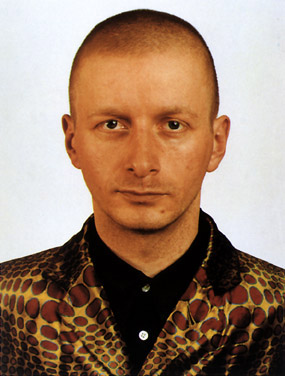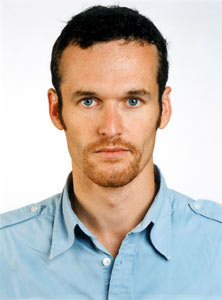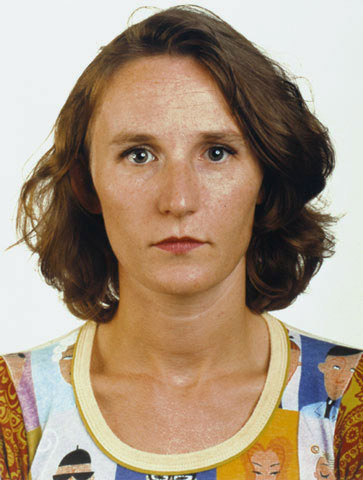Lisboa, Portugal, 6 y 7 de noviembre de 2014. La contención emocional es el tema de este congreso organizado por el Centro de Estudios Comparados de la Universidad de Lisboa. El incierto estatuto de la emoción en la estética y el arte contemporáneos revisado en la ciudad sosegada.
Aesthetics of Emotional Restraint
(Estética de la contención emocional)
Universidad de Lisboa. Facultad de Letras
 El modernismo es la culminación de un proceso que se hizo gradualmente visible a lo largo de diferentes momentos en la deconstrucción de las ideas y la estética románticas. La empatía y la pregnante retórica características del romanticismo se convirtieron durante el siglo XIX en el blanco de estrategias deliberadas diseñadas para controlarlas e incluso eliminarlas, dando paso a actitudes de frialdad y distancia emocional. Estos discursos estéticos evolucionaron hacia modos de comunicación basados en el shock, la agresividad, el disgusto y la distancia, y siguen produciéndose así en la experimentación y el desarrollo de la estética posmoderna.
El modernismo es la culminación de un proceso que se hizo gradualmente visible a lo largo de diferentes momentos en la deconstrucción de las ideas y la estética románticas. La empatía y la pregnante retórica características del romanticismo se convirtieron durante el siglo XIX en el blanco de estrategias deliberadas diseñadas para controlarlas e incluso eliminarlas, dando paso a actitudes de frialdad y distancia emocional. Estos discursos estéticos evolucionaron hacia modos de comunicación basados en el shock, la agresividad, el disgusto y la distancia, y siguen produciéndose así en la experimentación y el desarrollo de la estética posmoderna.
Retratos, de Thomas Ruff, el fotógrafo de la inexpresión cotidiana.
Ponentes principales/
Helena Buescu
Universidad de Lisboa
Gregory Currie
Universidad de Nottingham
Helmut Lethen
Martin von Koppenfels
Ludwig Maximilians Universität, München
Ponentes/
Martin von Koppenfels (Ludwig–Maximilian–Universität, Munich)
Gregory Currie (Universidad de York)
Helmut Lethen (Internationales Forschungszentrum Kulturwissenschaften, Viena)
Helena Buescu (Centro de Estudos Comparatistas, Universidad de Lisboa)
Tasas del congreso/
Presentación de trabajos (con certificado): 75 €
Participación (con certificado): 25 €.
Estudiantes presentación / Papel (Con certificado): 25 €
Estudiantes / Participación (Con certificado): 10 €
Más información/
http://aestheticsofemotion.wordpress.com/2014/03/09/aesthetics-of-emotional-restraint-conference/
Aesthetics of Emotional Restraint
November 6, 2014 – November 7, 2014
University of Lisbon
Keynote speakers/
Helena Buescu
University of Lisbon
Gregory Currie
University of Nottingham
Helmut Lethen
Martin von Koppenfels
Ludwig Maximilians Universität, München
 We take great pleasure in announcing the Conference Aesthetics of Emotional Restraint, organized by the Centre for Comparative Studies of the University of Lisbon, and to be held in the Faculty of Letters in November 6th-7th, 2014.
We take great pleasure in announcing the Conference Aesthetics of Emotional Restraint, organized by the Centre for Comparative Studies of the University of Lisbon, and to be held in the Faculty of Letters in November 6th-7th, 2014.
Modernism is the culmination of a process that became gradually visible along the several moments of deconstruction of the romantic aesthetics and ideas. The empathy and appealing rhetoric which were typical of Romanticism became during the 19th century the target of deliberate strategies designed to control and even to eliminate them, giving way to attitudes of coldness and emotional distance. These aesthetic discourses evolved towards modes of communication based on shock, aggressiveness, disgust and distance and are still in progress by experimentation and development in postmodern aesthetics.
Contemporary literature and arts present a complex and multifarious panorama, in which the expression and representation of emotions take place in many different ways. If, however, there are examples of exaltation and excess, there also remains the tendency to maintain the “cold gaze” and the reduction of emotionality. These attitudes are mainly present in trauma narratives and in fictions in which the main characters are defined by expertise and technical mastery. The same happens in the representation of absurd situations, in the use of narration/reading as a game, in the refusal of subjectivity and in the use of irony and of strategies of a fragmented focalization. The evolution in the media and especially in science and technology supports this tendency, turning literature and the arts into privileged sites for second order observation. This allows for the stressing of its cognitive capacity and the cooling down of its emotional and empathic effects.
 It is now necessary to identify, analyze and describe the rhetoric models that were progressively introduced in order to “cool down” the specific languages of the different arts, which brought about a change in the understanding of the relationship between the artistic objects, their authors, and the public.
It is now necessary to identify, analyze and describe the rhetoric models that were progressively introduced in order to “cool down” the specific languages of the different arts, which brought about a change in the understanding of the relationship between the artistic objects, their authors, and the public.
Keynote Speakers/
Martin von Koppenfels ( Ludwig-Maximilian-Universität, Munich)
Gregory Currie (University of York)
Helmut Lethen (Internationales Forschungszentrum Kulturwissenschaften, Vienna)
Helena Buescu (Centro de Estudos Comparatistas, University of Lisbon)
Conference fees/
Paper presentation (With certificate) : 75€
Participation (With certificate): 25€.
Students/ Paper presentation (With certificate) : 25€
Students/ Participation (With certificate) : 10€
More information/
http://aestheticsofemotion.wordpress.com/2014/03/09/aesthetics-of-emotional-restraint-conference/








